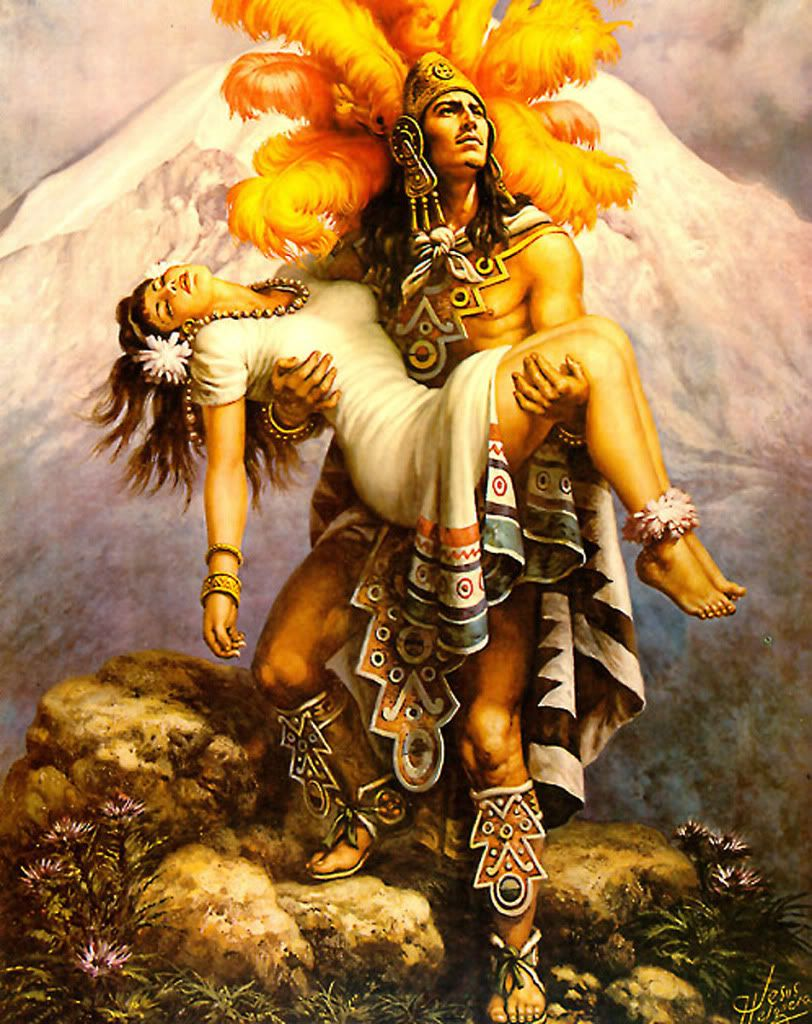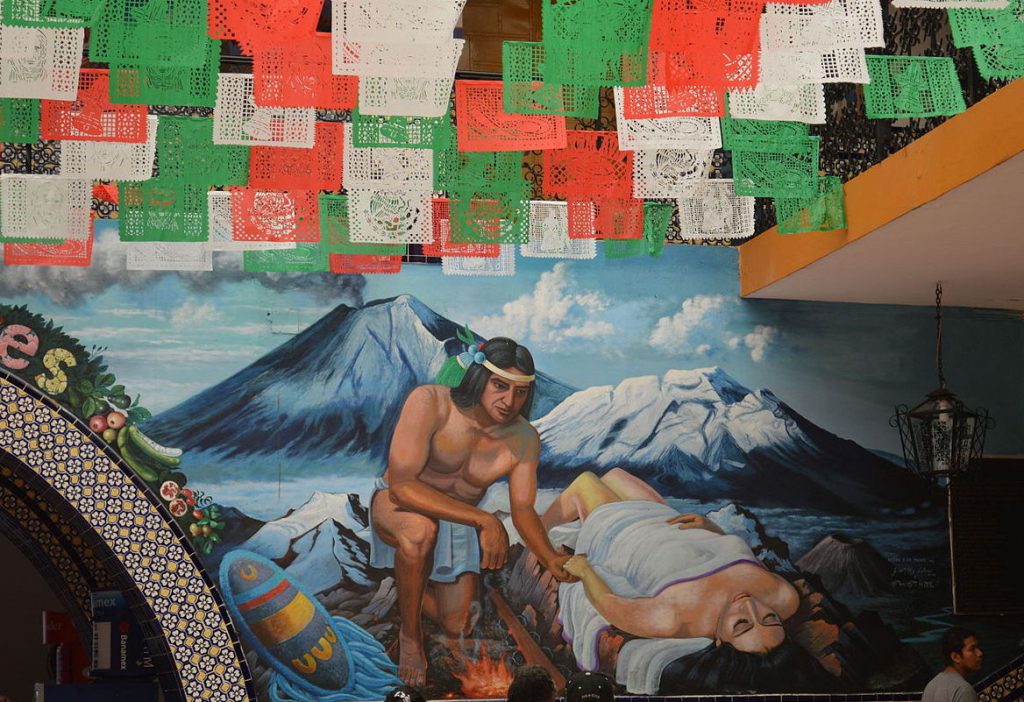Epic romance stories can be found in all cultures and are told in all languages. Without a doubt, the basic human desire to love and be loved is one of the most important instincts of our creation.
The story of Popocatépetl (Popo) and Iztaccihuatl (Izta) is the Aztec Romeo and Juliet, who were denied their love while they lived, but were destined to spend eternity together.
Two volcanoes that form the backdrop of Mexico City. Izta and Popo, as they are affectionately called, are a symbol of eternal love.
Izta was a princess of the Tlaxcala tribe. As with most royal families, her father wanted her to marry a prince from the Tlaxcala tribe, but she was not interested in anyone, because Izta was in love with Popo, a prince from the Chichimeca tribe. Her love for Popo did not please her father, but she rejected everyone else and refused to marry.
The emperor finally backed down, telling Popo that he would allow him to marry his daughter on the condition that the Chichimecas fight alongside the Tlaxcalans against the Aztecs who were their enemies.
After several months of combat, another warrior named Citlaltépetl, who also loved Izta and hated Popo, sent a false message to the Emperor. The message said that Popo’s army had won the war, but that he had died in battle.
The emperor informed his daughter that Popo had fought honourably, but was killed. This news broke Izta’s heart. She refused to leave her room, she didn’t eat or drink anything, just slept and dreamed of her beloved Popo. Due to hunger, and above all heartbreak, her body finally succumbed and she died.
One version of this legend says that she became very sick and died, while others say that she finally committed suicide.
Popo was not dead, however. He returned from the war victorious and, most importantly for him, he would finally reunite and marry the love of his life.
On his return from the war, Popo presented the emperor with his victories and gifted the glory of his victories to the emperor. Sadly, the emperor informed him that Izta had died.
Popo went to Izta’s room. Seeing her dead, the grief stricken prince bent down and gently picked up her beautiful but lifeless body and carried her in his arms to the high mountains outside the city. He left her on one side of the mountain, promising to stay and watch over her.

He lit a torch and promised to keep vigil until Izta finally woke up again. Even when the snow had almost covered Izta’s body, the torch still burned. His faith in the gods and afterlife was so strong that Popo knew Izta would finally wake up.
Legend has it that Popo still watches over Izta, and his torch will never go out until the day she wakes up. That is why, to this day, the Popo volcano continues to smoke, while the other volcano next to it is dormant, as Izta continues to sleep in eternal silence.
The flame of Popo’s torch will only die when Izta finally wakes up to ease Popo’s burning heart for his undying love.
Tourists can visit the volcanoes of Popo and Izta, which are less than 100 kilometres from the City of Mexico. They command the countryside in eternal memory of the Romeo and Juliet of ancient Mexico.
The message of class bigotry and jealousy provokes and questions the way humans deny love to two young people for the simple reason that they are from different backgrounds.
Whether true or simply the stuff of legends is not the issue. The story of Popo and Izta begs the question, what has changed in human prejudice, be it race, religion or colour? Not much, I imagine.
Main image, top, is a mural depicting Popo and Izta inside the municipal palace of Atlixco, Puebla, Mexico, in 2015. Cropped photo © Alejandro Linares Garcia, CC By SA 4.0





